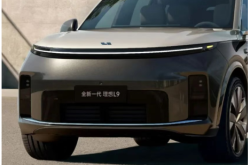Meta Lures Apple's AI Leader with Nine-Figure Salary! Insights from Apple and Meta Experts
![]() 07/09 2025
07/09 2025
![]() 625
625
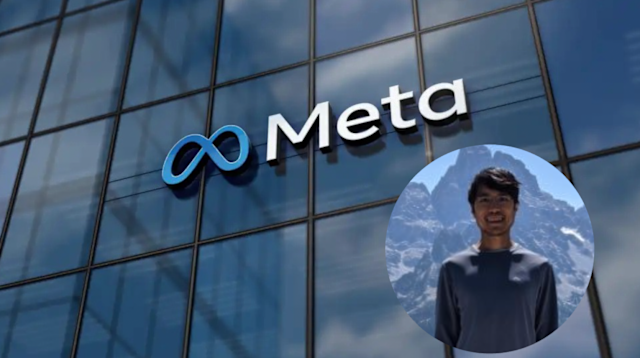
Pang Ruoming, the head of Apple's AI division, has defected to Meta with an annual salary reaching nine figures. Is this a reflection of Apple's self-developed AI becoming a mere "backup option," or Meta's alluring promise of being a "super intelligence" dream team? As a talent poaching incident escalates into a public showdown between two AI strategies, what is the true deciding factor? We interviewed two internal experts from Apple and Meta to uncover the underlying logic behind this extraordinary poaching incident.
The Internal Push from Apple
"This isn't just a job hop; it's more like a silent protest," said the first expert we connected with—an anonymous engineer from Apple's AFM team. Discussing the departure of his former leader, Pang Ruoming, his tone was tinged with regret and helplessness.
"Everyone talks about salary, but it's just a catalyst. The real push comes from within. Ruoming's AFM team comprises nearly 100 top talents who have dedicated years to building Apple's multi-modal large model, the MM1 series. The email summaries, Genmoji emoji generation, and even some smart album optimizations seen at WWDC are all thanks to our models. We once believed we were building an independent, powerful, and privacy-focused AI future for Apple.
But everything changed in recent months. The team was reassigned under Daphne Luong, deputy to AI Senior Vice President John Giannandrea. Her scrutiny became exceptionally strict, pressure on engineers soared, and project autonomy diminished.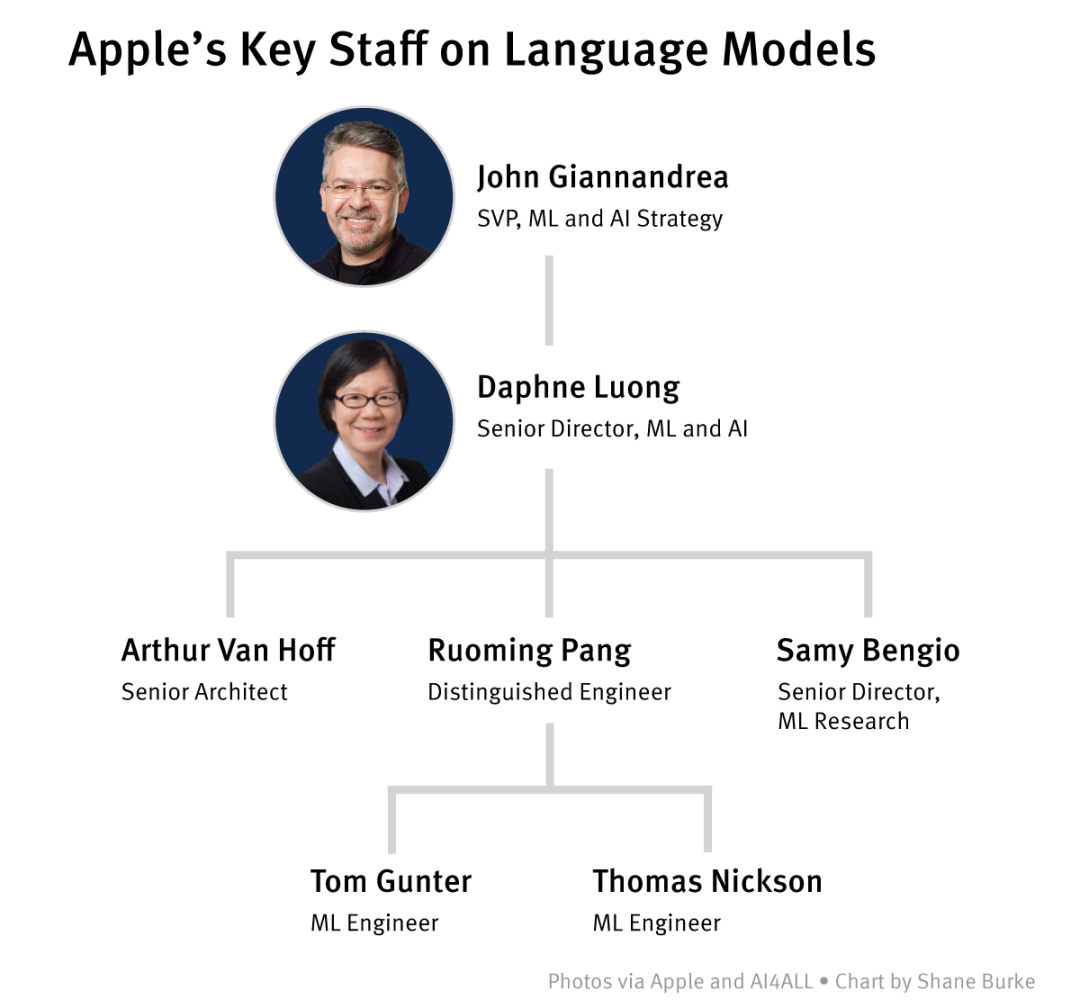
The real blow came at WWDC when Apple announced with great fanfare the integration of OpenAI's ChatGPT. Executives made it clear in post-conference interviews that they hoped to introduce more models like Google's Gemini in the future. Many of us in the team watched from the audience or screens. The feeling was complex... It was like watching your painstakingly planted orchard being overshadowed by the boss's decision to buy fruits from the neighbors to impress important guests. Overnight, our achievements were downgraded to 'backup options.'"
This strategic uncertainty is unbearable. It implies that your efforts could be replaced anytime, and your value cannot be maximized. Ruoming's departure is a signal, not an isolated case. His deputy, Tom Gunter, left last month, and now many team members are quietly updating their LinkedIn profiles, with headhunters' phones ringing non-stop. It's not just about money; it's a loss of value and direction. When senior management hesitates about the self-developed route, it's hard for engineers to maintain 100% belief.
Meta's Powerful Attraction
To understand the other side, we reached out to a senior expert from Meta's AI recruitment team, who revealed the logic behind this "poaching".
"Mark Zuckerberg is phenomenally eager for AI talent. He personally emails top candidates, inviting them to dinner at his Palos Verdes Estates mansion. The multi-million dollar annual salary offered to Ruoming may seem astronomical to the outside world, but internally, it's seen as a necessary investment in 'talented leaders' to ensure a leading position in the next decade's most crucial technology race.
More importantly, Meta's commitment is clear: to build a dream team dedicated to constructing 'super intelligence' and providing it with unlimited 'ammunition.' This 'ammunition' refers not just to budget but also to Silicon Valley's most valuable resource—computing power. Meta is frantically stockpiling NVIDIA's H100 GPUs, aiming to reach hundreds of thousands by year-end. This computing power reserve makes all AI researchers envious. For experts like Ruoming, it means unrestricted training of larger, stronger models, realizing ambitions that may have been stifled at Apple.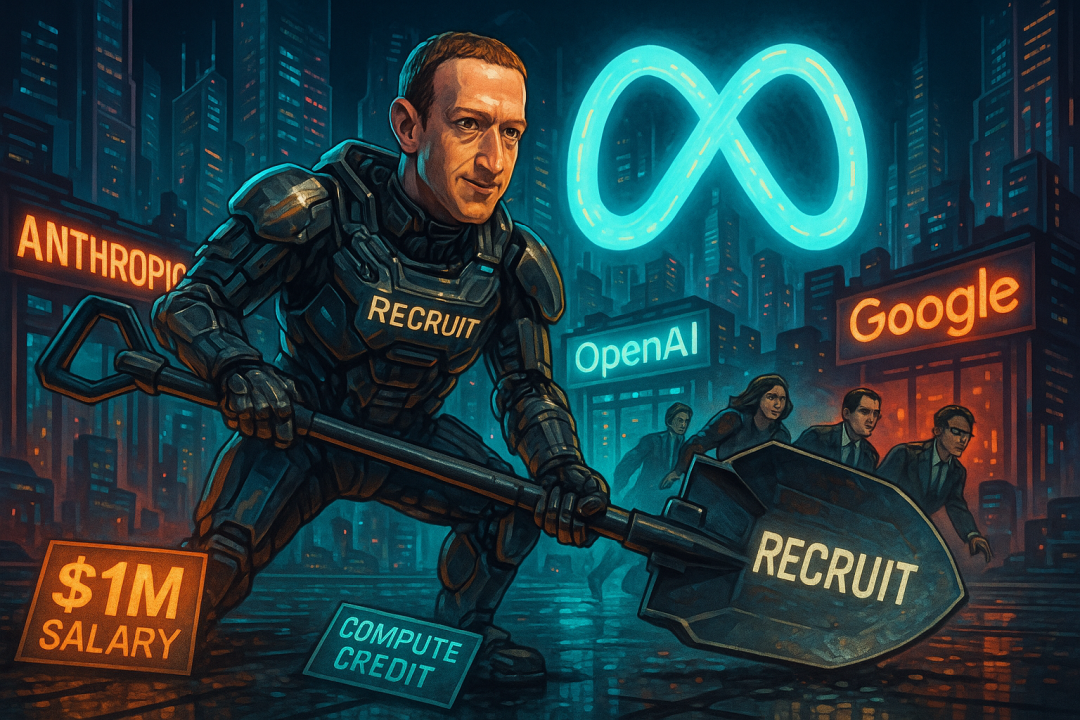
Meta's recent moves are not just about expanding the team but precisely absorbing top talents in every field.
Ruoming Pang, from Apple, is a talented leader in building large-scale, multi-modal foundational models. He knows how to integrate complex AI models into products used by hundreds of millions of users.
Yuanzhi Li, from OpenAI, is a top researcher in theory and algorithms, strengthening Meta's theoretical depth in next-generation model architectures.
Anton Bakhtin, from Anthropic, is an expert in building and training large language models (like Claude), with deep experience in AI Agents and reinforcement learning.
Moreover, don't forget their recent additions like Alexandr Wang (Meta's Chief AI Officer), former GitHub CEO Nat Friedman, and entrepreneur Daniel Gross. This signals that Meta is recruiting not just top 'scientists' but also top 'product leaders' and 'strategists,' forming a super team covering the entire chain from underlying research, model training, to productization and commercialization.
Here, you don't worry that your research results will be treated as a 'backup option.' Instead, the company's resources will be inclined toward you. For scientists eager to realize their technical ambitions, this stage of unconstrained technical leadership is even more attractive than salary.
A Strategic Showdown
Finally, we invited a senior industry analyst who has long focused on tech giants' strategies to provide a more macro perspective.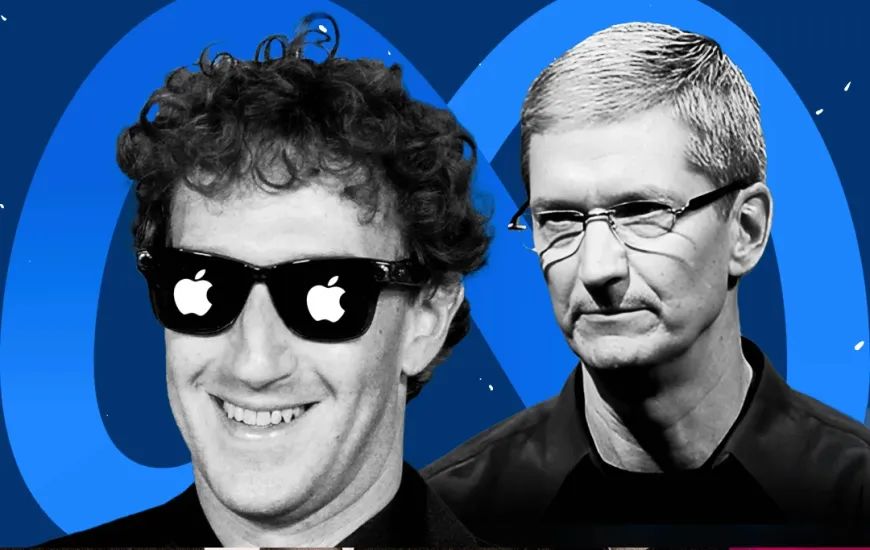 "We must look beyond the appearance of 'talent hopping' to see the two distinct AI strategic approaches behind it.
"We must look beyond the appearance of 'talent hopping' to see the two distinct AI strategic approaches behind it.
Apple's strategy is essentially 'pragmatic defensive integration.' Its core goal is 'AI for Product,' leveraging AI to optimize its unparalleled hardware ecosystem experience. Apple's strengths lie in terminals and privacy, so it vigorously develops on-device AI. However, in large model capabilities, it has indeed fallen behind. To avoid missing out on critical AI functions, it must cooperate with external powerhouses. This is pragmatic but also helpless. While this strategy can quickly compensate for shortcomings, it breaks Apple's proud myth of 'vertical integration of software and hardware,' demoralizing the self-developed team and exposing strategic vulnerability during the AI era transition.
Meta's strategy, on the other hand, is a complete 'open-source lightning attack.' Zuckerberg's goal is 'AI is the Product.' By open-sourcing powerful Llama series models, Meta is playing a big game. It not only disrupts closed-source competitors like OpenAI through a free model but, more importantly, establishes a global developer ecosystem. Countless companies and individuals innovate based on Llama, providing Meta with massive data and application scenarios, consolidating its discourse power and platform status in AI. Therefore, it must recruit top talents at all costs to ensure its core models' leading position, a highly aggressive strategy.
So, Ruoming Pang's move is a landmark event amidst these strategy conflicts. It预示着the intensified competition for global AI talent. In coming years, we'll see more top talents gather at companies with clearer strategies, firmer determination, and more concentrated resources.
Conclusion
Through in-depth conversations with these three experts, a far more three-dimensional and profound picture emerges compared to public news.
In today's rapidly changing tech battlefield, every executive change and strategic tweak may hide crucial information determining a company's future. Relying on second-hand information and vague judgments is akin to armchair strategizing.


